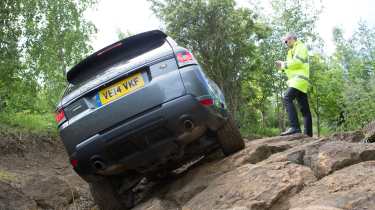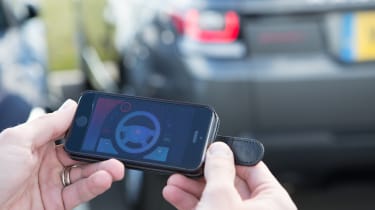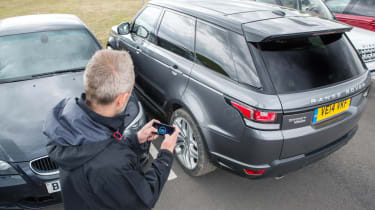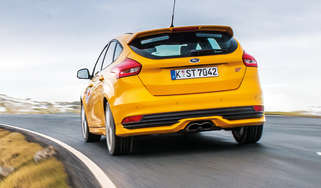Autonomous off-roading previewed by Jaguar Land Rover
JLR video demonstrates smartphone controlled and autonomous Range Rovers
Jaguar Land Rover has provided us with a glimpse of its future by revealing its latest autonomous prototypes. The first is its Remote Control Range Rover Sport, an off-roader that can be controlled externally via a smartphone app, and the second is the Multi-Point Turn Range Rover Sport, which can manoeuvre itself out of tricky situations without intervention.
In the Remote Control prototype, navigating a Range Rover through a stream or slippery surface can be attempted from as far as 10 metres away via a smartphone app that controls steering, the accelerator and brakes, as well as changing the gearing from high to low range. JLR says removing the driver from the car can take them out of harm's way if it's in a dangerous situation, with top speed limited to 4mph to prevent the car rolling away.
To prevent thieves hacking into your phone and controlling the car remotely, the Range Rover will only respond to commands if the smart key is detected within range. And to stop drivers running themselves over, the car will automatically stop if it gets too close.
If JLR’s video above is to be believed, the technology is certainly impressive, but we’re not sure if many owners of a luxury off-roader would feel confident enough to control their £60,000 car via a free smartphone app…
Perhaps the second prototype makes more sense in 2015. For drivers in tricky situations, the Multi-Point Turn Range Rover Sport features tech that could one day autonomously drive the car to safety without any human intervention. Whether the Range Rover faces a narrow gap between two Dipterocarp trees in a South-East Asian rainforest, or more likely, is trapped between two cars in a tight supermarket parking space, the technologoy uses specially developed sensors to find a way out of the situation.
Currently, the tech is able to control the throttle, brakes, gears and steering, to turn the car a full 180 degrees. As confirmed in JLR’s video, this enables drivers to complete a turn in the road without touching any controls.
‘Research technologies like these won’t only help us deliver an autonomous car, they will help make real driving safer and more enjoyable,’ explains Dr Wolfgang Epple, Director of Research and Technology at JLR. ‘The same sensors and systems that will help an autonomous car make the right decisions, will assist the driver and enhances the experience to help prevent accidents. Autonomous car technologies will not take away the fun of driving.’
JLR says the reason it is developing this technology is because it wants its future vehicles to be able to go almost anywhere - just like its current range. The difference is these cars won’t necessarily need a driver behind the wheel. ‘We know our customers drive in heavy rain, and snow, and bright desert sunshine every day,’ continues Dr Epple. ‘We are working on an array of new sensors that would enable a car to operate in any environment, without any outside intervention or input from lane marketing or roadside infrastructure like traffic lights.’
JLR’s engineers call this fully automated car ‘Solo Car.’ While Solo Car is still very much in its earliest stages of development, JLR’s commitment to invest in this tech suggests the Coventry based carmaker’s products could one day drive themselves on and off road.
JLR isn’t the only car manufacturer involved in this type of tech however. BMW has already equipped its 2015 7 Series with systems that can auto-drive the car out of and in to a car parking space without a driver behind the wheel.





